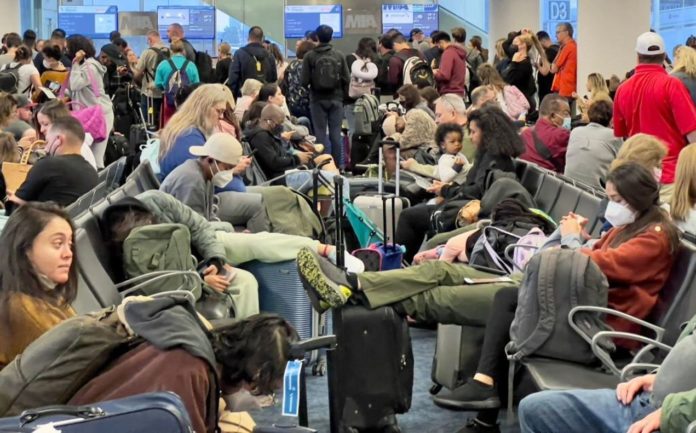While President Joe Biden’s administration is expanding access to the life-saving COVID-19 antiviral drug, a new study warns about a risk factor that enhances COVID’s potential to trigger depression, anxiety, and burnout symptoms.
Every night, around one-third of Americans — or 100 million people — struggle to get enough sleep.
However, after the initial lockdown, when people were instructed to spend more time at home, this number reduced, albeit it is now expected to rise again.
Sleep deprivation is frequently triggered by daily stress from job and family life, but it can also be provoked by other habits such as actively deciding to binge-watch TV late at night.
A new study reveals that people who didn’t get enough sleep when COVID-19 hit were more likely to experience depression, anxiety, or burnout.
From January to July 2020, experts tracked the sleeping patterns of 5,000 people in the study, which was published last week in the Sleep Health Journal.
Participants were largely high-earning men in their late 30s with a family income of more than $100,000 per year.
A WHOOP gadget, worn on the wrist to measure daily activity and sleeping habits, was used by the scientists to track their sleeping patterns.
They used a questionnaire to see if anyone was having problems with their mental health.
24 percent of the 180 participants who slept less than six hours per night showed anxiety or sadness, and 36 percent said they were burnt out.
However, research discovered that 16 percent of individuals who got at least seven hours had anxiety or sadness, and 26 percent had burnout.
There was also an increase in substance addiction among those who did not get enough sleep, with 11 percent more likely to report it.
Overall, the study found that once the outbreak hit, people slept for more than seven hours a night for roughly 15 minutes longer.
They also discovered that participants went to bed 18 minutes later on average, yet awoke 36 minutes later on average.
The study was observational, which meant it couldn’t say whether the pandemic’s anxieties caused poor sleep or vice versa.
According to Mark Czeizler, lead author, they “don’t know the direction of this relationship — the degree to which mental health influences sleep, sleep influences mental health, or both”
But they “do see evidence of the important role of sleep during the pandemic, especially as we look for modifiable risk factors that could help improve mental health.”
The findings, according to the lead author, speak “to the importance of sleep for mental health, especially in the context of stressful episodes.
“Making an effort to prioritize sleep and develop a regular sleep schedule can offer protection during these times.”
Image Credit: Getty
You were reading: This enhances Covid’s ability to make people feel more depressed, anxious and burnt-out
